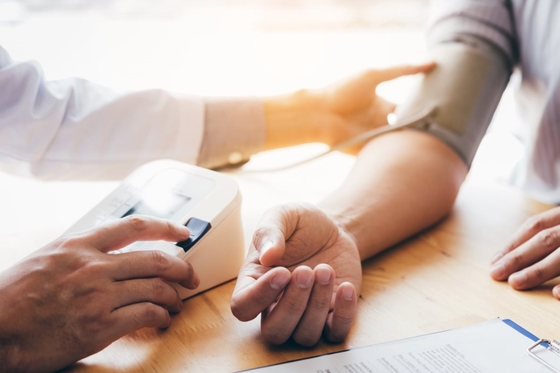Power to the treadmill: clinical exercise physiology to improve the detection of high blood pressure
/
Power to the treadmill: clinical exercise physiology to improve the detection of high blood pressure
Dr Martin Schultz, University of Tasmania
2019 Future Leader Fellowship
Years funded: 2020-2023
High blood pressure (BP) is the foremost risk factor for cardiovascular disease the leading cause of death worldwide and accounts for the greatest global disease burden. One in three Australian adults have high BP and many more cases remain undiagnosed. To reduce the personal and economic costs of cardiovascular disease, there is an urgent need to improve methods for identifying and managing high BP
At present, a ready opportunity to detect and respond to abnormal BP remains entirely overlooked. Each year, cardiologists and exercise physiologists conduct millions of exercise tests worldwide, with BP measurement a mandatory requirement of these tests. My research suggests that raised BP during clinical exercise testing, ‘exercise hypertension’, is a signal for cardiovascular events and death that most likely went undetected during traditional methods of assessment at rest. Thus, exercise BP offers a unique opportunity to identify individuals at BP-related cardiovascular disease-risk that conventional screening would miss. This fellowship will yield information to fill clinical evidence gaps relating to exercise BP.
My program of research consists of 3 collaborative projects that will
- provide the first-ever evidenced-based exercise BP thresholds via a nationwide data-linkage study of >200,000 clinical exercise tests linked to outcomes,
- include a randomised, controlled trial within the Australian exercise physiology sector to determine whether exercise BP can improve identification and management of high BP, and
- comprehensively determine factors that influence exercise BP and its associated cardiovascular risk by analysing international, longitudinal cohort study data.
The outcomes of these studies will ultimately lead to improved patient care and reduce the significant health and economic burden of high BP and cardiovascular disease in Australia.
You might also be interested in...

New research to determine link between high blood pressure and gut health
New research funded by the Heart Foundation will investigate whether poor gut health is a cause of high-blood pressure.

Dr Renata Libianto
High blood pressure caused by hormonal imbalance - how common is it, and how do we detect it?

Coronary physiology in the cardiac catheter laboratory
Coronary physiology in the cardiac catheter laboratory
Last updated12 March 2024